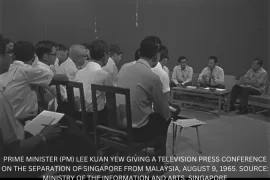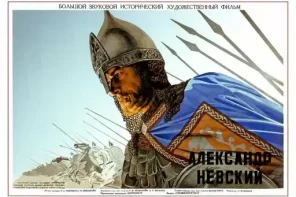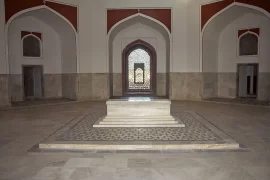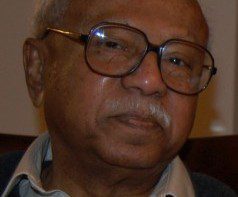Alexander the Great, known for his military prowess and vast empire, is a prominent figure in world history. While his conquests and legacy have been extensively discussed in Western narratives, the story of Alexander also holds significance within Islamic history. In this article, we delve into the fascinating topic of Alexander the Great in Islam. We will explore the diverse perspectives and interpretations of his persona, impact, and interactions with Muslim societies.
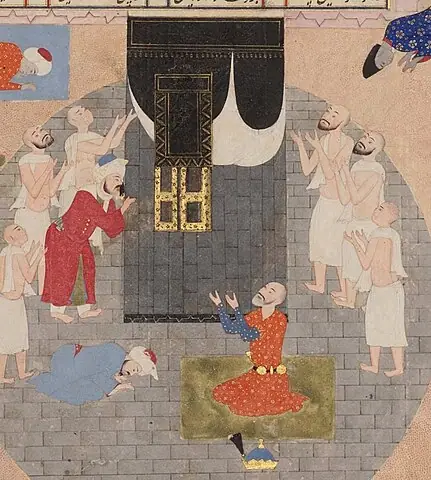
Alexander as Dhul-Qarnayn
In Islamic tradition, Alexander is often associated with Dhul-Qarnayn, a figure mentioned in the Quran (Surah Al-Kahf : 83-98). Prophet Dhul-Qarnayn (the two-horned) is a righteous ruler who traveled extensively, establishing justice and encountering various people along his journeys. He built the barrier against Gog and Magog. He also took the journey to the rising and setting places of the sun. The association with Dhul-Qarnayn has shaped the Islamic perspective of the great conqueror. However, scholars have debated whether Dhul-Qarnayn is indeed Alexander.
Surah Al-Kahf
Surah Al-Kahf reads:
They ask you ˹O Prophet˺ about Dhul-Qarnain. Say, “I will relate to you something of his narrative. Surely We established him in the land, and gave him the means to all things. So he travelled a course,until he reached the setting ˹point˺ of the sun, which appeared to him to be setting in a spring of murky water, where he found some people.
We said, “O Dhul-Qarnain! Either punish them or treat them kindly.”He responded, “Whoever does wrong will be punished by us, then will be returned to their Lord, Who will punish them with a horrible torment. As for those who believe and do good, they will have the finest reward, and we will assign them easy commands.”
Then he travelled a ˹different˺ courseuntil he reached the rising ˹point˺ of the sun. He found it rising on a people for whom We had provided no shelter from it.1So it was. And We truly had full knowledge of him.Then he travelled a ˹third˺ courseuntil he reached ˹a pass˺ between two mountains. He found in front of them a people who could hardly understand ˹his˺ language.
They pleaded, “O Dhul-Qarnain! Surely Gog and Magog1 are spreading corruption throughout the land. Should we pay you tribute, provided that you build a wall between us and them?”He responded, “What my Lord has provided for me is far better. But assist me with resources, and I will build a barrier between you and them. Bring me blocks of iron!” Then, when he had filled up ˹the gap˺ between the two mountains, he ordered, “Blow!” When the iron became red hot, he said, “Bring me molten copper to pour over it.”And so the enemies could neither scale nor tunnel through it.He declared, “This is a mercy from my Lord. But when the promise of my Lord comes to pass, He will level it to the ground. And my Lord’s promise is ever true.
Islamic Accounts and Interpretations
Muslim historians and scholars have written accounts and commentaries on the life and exploits of Alexander, incorporating elements from various sources. These narratives highlight Alexander’s military campaigns, his encounters with ancient civilizations, and his legendary quest to reach the ends of the earth. These accounts offer a unique Islamic perspective on his character and accomplishments.
Impact on Islamic Art and Culture
The figure of Alexander the Great has inspired Islamic art, literature, and folklore. His legendary exploits, such as the cutting of the Gordian Knot, appeared repeatedly in miniature paintings, illuminated manuscripts, and architectural designs. These artistic interpretations reflect the admiration and fascination with his persona within Islamic artistic traditions.
Alexander in Persian literature
Shahnamah, the epic masterpiece written by Ferdowsi, holds a chapter dedicated to the legendary figure of Alexander the Great. According to Shahnamah, Alexander is the offspring of a Persian king named Daraaye Darab and the daughter of Philip, a king. However, their relationship encounters difficulties, leading to the daughter’s return to Rome. It is after her departure that Alexander is born, with Philip claiming him as his own son and concealing the child’s true identity. Interestingly, Ferdowsi sends Alexander on the pilgrimage to Ka`bah.
In classical Persian literature, Alexander’s name is both Iskandar and Sikandar. In modern Iranian Persian, we see his name as Eskandar-e Maqdūnī, signifying “Alexander the Macedonian.” Muslim Iranian writers depicted Alexander as a brave warrior, a just king and a prophet.
Philosophical and Ethical Lessons
Islamic scholars have also explored philosophical and ethical lessons derived from the life of Alexander. His conquests and encounters with different cultures have sparked discussions on the nature of power, justice, and the responsibilities of rulers. These reflections have contributed to broader Islamic intellectual and moral discourses.
Summary of ‘Alexander the Great in Islam’
The presence of Alexander the Great in Islam is a complex and multifaceted subject. While his persona and impact may vary across different interpretations, the encounters between Alexander and the Islamic world have left a lasting imprint. Whether as the mysterious figure referred to in the Quran or as Dhul-Qarnayn, his legacy has sparked intellectual, artistic, and philosophical discussions within Islamic societies. Understanding the diverse perspectives on Alexander in Islam enriches our understanding of his place in world history. It also sheds light on the cultural and intellectual exchange between different civilizations.

